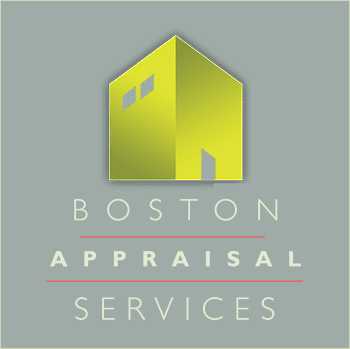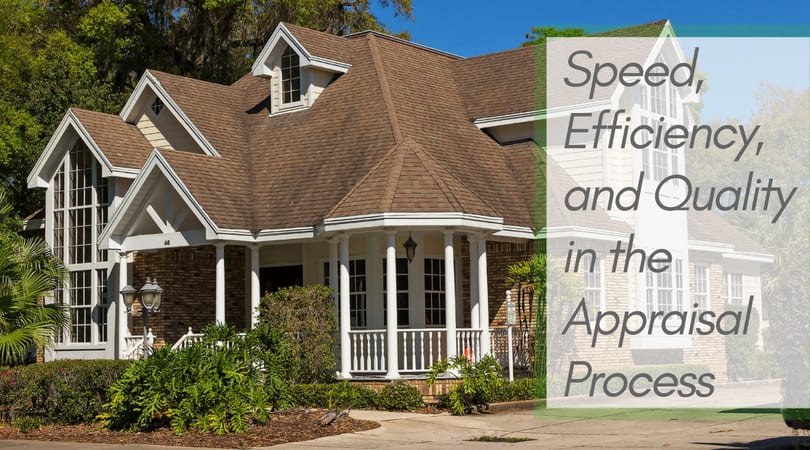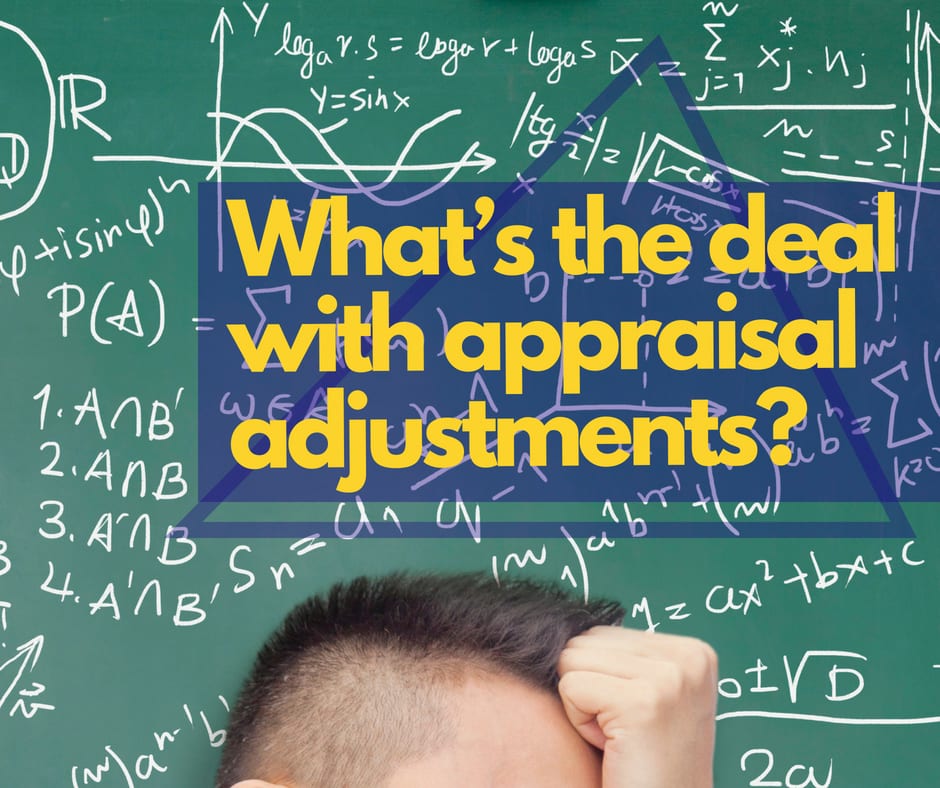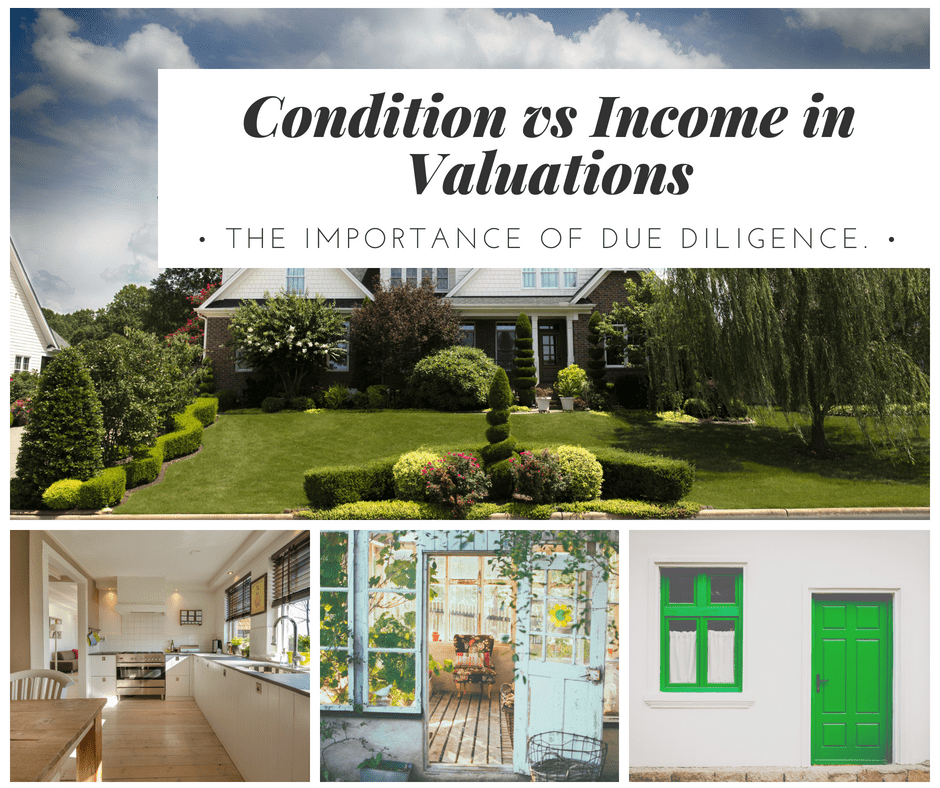What I’ve always loved about working in the appraisal field is the opportunity to get out into the community daily. Being immersed in the local real estate market has helped me develop a keen insight into the economic factors that influence properties in my community of Massachusetts. Part of the reason we write this blog is to share with you what we’ve learned from our practical experience. There’s not a lot of public education out there regarding the subject of appraisal and the valuation process, so we’ll bridge the gap here.
What position do you want to be in when you exit your commercial real estate investments? If you put these 7 income and value boosting strategies to work, you’ll be on your way to a profitable project conclusion. The essential avenues to improve value include increasing demand, boosting income, lowering expenses, and reducing risk. The following approaches make sense in nearly any market and will improve the exit results of any commercial property investment.
For fix n’ flip investors, private lenders, credit unions, hard money lenders, and small lending institutions, it’s important to consider Days on Market (DOM). The number of days a property took to sell (or the number of days it has currently been on the market) can help us understand how the property performed and whether any other factors may have influenced the value of the property. Additionally, the average days on market for a community can give us clues about how well the market is moving and what types of properties and locations are in demand.
What DOM Can Tell Us About Pricing
The main use of DOM in valuations is to tell us if the property in question (subject and comparable) was or is properly priced. We typically expect an appropriately priced listing to sell in less days than one that is comparatively over-priced. In a brisk market, you might expect a listing to sell within 10-30 days if priced competitively, and 30-90 days as the original list price increases beyond fair market value (FMV).
DOM can also indicate potential transactional issues. Financing, inspections, repairs, and funding can cause delays that are reflected in the Days on Market. When you have a comparable that demonstrates a high DOM, don’t assume that the cause is pricing. It may be a variety of market, situational, and property factors contributing. If issues are present that clearly increase DOM, opt to eliminate as a comparable when better comps are available. Poor quality comps lead to skewed values.
Very High DOM – Distressed Sales
When the DOM is very high, there are several common issues that will explain the figure. A primary cause is a distressed sale. Short sales, probates, and other legally-intricate transaction types tend to take time and involve frequent delays caused by the due process of law and personal concerns of the parties.
Sometimes such listings in the MLS and other data sources aren’t properly marked as distressed sales. If you don’t see any other clear indication as to why the DOM is high, check the notes or contact the listing agent to inquire about the circumstances of the sale.
Expired and Relisted Listings
Closely related to excessive pricing, an expired listing is a likely explanation for a high days on market. If the listing has expired and been subsequently relisted, the total cumulative days on market (CDOM) may be shown instead of the DOM. Depending on the local MLS you may find DOM and CDOM displayed together or interchangeably. Even if some time has passed between the expiration and new listing, the DOM figure may be inflated (and may not indicate a problem with the property or pricing).
High Initial List Price
High DOMs also indicate a potentially high initial listing price. Subsequent price reductions often can’t make up for a price that was too high in the first place and deterred ideal buyer prospects. Listings lose momentum and credibility with buyers when priced excessively at the start. Ideal buyers for a property in a given condition or location (similar to the subject) will tend to give less weight to listings that have had subsequent price reductions.
Very Low DOM
A very low DOM can also tell us something about the listing or sale. If the DOM is extremely low, as in 1 day or less, it may indicate a private sale or immediate cash transaction; in some markets, agents must post the listing to the MLS, even if sold immediately.
Unless the market is very competitive and average DOM is low, DOMs of less than 10 days can signify an initial price that was too low. Either way, it pays to price properties at FMV. Low pricing will deter buyers that may suspect latent issues or be opposed to ‘fixer uppers’ or properties needing perceived ‘TLC.’
In your analysis, if you have sufficient comps, discard those of lesser quality, especially when they are outliers in terms of DOM or other factors.
Hidden or Less Than Obvious Defects
Any reasonable buyer or investor would suspect: Why did it take so long for X property to sell? In the absence of any other concrete property or market data, potential buyers will draw their own conclusions, leading to sensible concerns regarding latent (hidden) property defects, environmental hazards/nuisances, and the like.
Another thing to look for are repair requests and concessions that may have delayed closing. As you evaluate comps or consider the listing history for your subject property, it’s in your best interests to have the same suspicions and ask questions or do further research to better understand the factors influencing the days on market and final selling or listing price.
Average Days on Market, Market Direction, and Absorption Rate
Days on Market is useful in gauging the pace of the market when looked at as an average across all properties of a specific type, class, or criteria. Of course, the lower the DOM, the more rapid the market. You’ll often see stable and rising prices, and a quickening absorption rate (inventory turnover) in conjunction with a low average DOM.
Choosing comps for your property isn’t as complicated as it looks. In fact, you probably already have some experience with this. As professional appraisers, we just want to offer our take on the process and hope it is of value to you in selling your home.
What’s a Comp? Comps, or comparables, are properties that are similar enough to your property to be useful for comparison. Selecting the best comps is a straightforward process and requires you to evaluate each property objectively.
To start out, we generally want to look at properties that were recently sold, and those that are currently on the market. The traditional number of comps that appraisers and agents select are three sold and three active listings. You can include more in your own analysis but use that number at a minimum.
When you’re preparing a valuation either as an appraiser, agent, or investor, you need to understand how neighboring properties affect the value of your subject, as well as how your subject impacts the value of properties in the neighborhood.
The best investment results, either as a business or homeowner, require careful due diligence to gather all the facts and observe every market factor.
Conformity
An important issue addressed in residential and commercial appraisals is conformity. Conformity refers to the similarity of properties within a neighborhood in terms of prevailing age, condition, size, style, and functional utility.
When a subdivision has a mix of architectural styles that don’t complement each other well, or differ in usage, zoning, or functional obsolescence, values tend to decrease compared to communities that exhibit greater similarity among properties.
Conformity is an important issue for investors and private lenders to consider as it can affect the long-term value and appreciation of the property. Although a potential acquisition may appear on its face to be a good deal because of a discount from retail, if the community is in the decline phase, it will experience less volume and appreciation, leading to a tough exit down the road, especially if marketed or held as a rental.
Pay attention to how local government is using its administrative powers to influence zoning, land usage, infrastructure, and note how these trends could support or detract from the potential value of your property. If you’re planning to hold your property as a rental, also consider how population growth and the health of local industry will influence demand from tenants as the community evolves.
Progression
Progression is the idea that when a community exhibits conformity and good overall conditions (c3-c4), but our subject is of lesser condition or utility, the value of the subject is greater than if it were located among properties of similar quality and characteristics.
Essentially, even though you may have a property that hasn’t been updated in 60 years, but it’s located among homes in a high-value subdivision with mostly modern designs, the subject’s value will be greater relative to a similar home in a below-median community.
The situation where you might encounter progression is when purchasing vacant land or dated homes in a luxury residential subdivision. The real cause behind progression is the increased demand for the land or the opportunity that the parcel represents. As margins can be smaller, by percentage, with HNW renovations, developers are willing to salvage as much of an original structure as possible to keep costs low and offset the premium paid, despite condition, due to progression.
Regression
Regression is the more common concern when it comes to valuations. Regression is the affect that a neighborhood with poor property conditions or low conformity will have on our subject. This frequently comes up when we have newer built or fully renovated homes or structures in an older-built community experiencing a decline phase. This also relates to the concept of diminishing returns and over-improvement.
When we’re planning our renovations, we need to keep upgrades and the overall condition and style of the property in line with the community. If we get excessive, we’ll not only likely exceed our budget, we also won’t be able to sell the property for enough to cover the unneeded expense.
The simplest way to hedge your bets is to work with valuations professionals to give you an expert third-party opinion on the value of the property. Ordering an appraisal will reduce your risk of making a decision based on an unsupported value, and the damage that can occur to your credibility in making a proposal with a faulty as-is or after-repair value.
When you need an appraisal, you need it fast. There are very few instances where there’s lots of time to wait for a report. The speed and gravity of the real estate closing and investment analysis process demand prompt reports that feature intensive detail, accurate adjustments, and solid reconciliations.
As valuations play a critical role in the real estate industry, it’s important to spend some additional time evaluating the best provider for your valuation needs. Reports that are questioned or rejected by lenders and investors lead to delays in closing and lost opportunity.
Technological advancements in market/property data collection, regression modeling techniques, and project management allow modern independent appraisal firms to deliver reports unmatched by larger firms that work through a network of contracted appraisers that are often sent out of their geographic and property class area of expertise.
You might think that a fast report means the potential for errors in a hastily prepared valuation; however, speed comes not from skipping important considerations in the appraisal process, but from having an expert in-house team that acts quickly to conduct the inspection, prepare the report, and ensure accuracy.
Speeding up the Process and Delivering Quality Reports
Many businesses and individuals in the real estate market are accustomed to waiting 2-3 weeks or longer for an appraisal report. This is attributable to fact that most reports are sourced through appraisal management companies that add unnecessary delays to the process.
Working directly with local appraisers affords you greater quality and speed by eliminating the unnecessary bureaucracies inherent in large organizations that don’t retain their own appraisal staff and don’t place customer service or efficiency at the forefront of their corporate values.
Rather than casting the net wide, independent appraisers focus on understanding the Massachusetts real estate market and delivering reports that reflect the unique factors present in each submarket on the shortest time scale possible.
How to Balance Speed and Quality in a Massachusetts Appraisal
Conducting the inspection and preparing the report are only half the story. Quality control or (QC) is equally vital to ensuring that your reports are top-notch. Here the efficiency and accuracy come in utilizing SRA and MAI designated appraisers to review each and every report. Reviewers look at the market data, comparable selection, adjustments, and every detail to ensure consistency and that the conclusions are rational and well-supported.
But it goes further: is the report professional in appearance? Is everything grammatically correct? Do the subject and comparable photos show the pertinent details to accurately assess condition, location, and functional utility? Does the report give you a complete picture of all the internal and external factors that influence the value of the property?
All of these aspects of a valuation are critical to ensure the legitimacy of the report, guarantee accuracy, and positively reflect on your organization (if you’re ordering as a business). Poorly prepared reports not only damage the credibility of the client when forwarded to lenders and investors, but also can cause real financial and liability issues if at a later point the value is discovered to be erroneous.
If you’re a homeowner or investor that’s ordering a report on your own behalf, the same considerations apply, but often the stakes are higher. When you’re crossing your fingers, hoping for a smooth closing, it’s best to partner with appraisers that are part of your community and place not only the quality and speed of the report as priorities, but also excellent customers service and the willingness to stand by their work, answer every concern, and make prompt revisions where needed.
For personal and business valuation customers alike, spending a little extra time researching local appraisal firms, reading their reviews, and asking questions about their process and follow-up support will ensure that your transaction has a positive outcome in the short and long term.
Probably the most common issue we hear with appraisals is the amount and type of adjustments. Homeowners, agents, and lenders alike tend to question reports and ask questions about the amount of adjustments.
Condition, location, closing/contract date, and features are given a lot of attention for the amount of adjustments. If you’re involved with the real estate business, you know how much scrutiny appraisals and their preparers get for valuations that come in lower than expected.
One of the toughest things in the process of buying a property for investment is determining how much the property is worth now and what it could be valued at if fully repaired for lease or resale.
Which is more difficult to determine, as-is or as-repaired (also called ARV or After Repair Value)? You might think that estimating the as-is value is the easier task, but it’s somewhat more complicated than assessing the ARV.
Adjusting for condition isn’t something that most appraisers love to do as it involves a significant amount of research to make an accurate estimate of the difference in value due to the condition of physical improvements.
The income approach to valuations is a relatively simple method that calculates the value of a property based on the net income it generates in the course of a year. An appraiser will use a multiplier called the capitalization rate to calculate the value. Valuations professionals like using this method whenever possible as the data regarding investor income and risk expectations is readily available by examining income and purchase price trends for a class of properties in a given market.
Often, less detail-oriented appraisers will focus too heavily on the income a property produces without giving adequate attention to the impact the property’s condition has on value, particularly in the long term. Even where a development’s income is relatively strong, savvy investors should consider how the condition of the property will influence ongoing maintenance and operational costs.
Older buildings, and those less well maintained, can suffer from a host of environmental and efficiency issues that potentially hinder the property’s exit value, contribute to liability concerns, lead to excessive energy and water expense, and limit tenant appeal, ultimately leading to losses and diminished returns.
In the case of single family residences, and those properties not intended for income generation, condition is a primary issue that appraisers must consider in the absence of financial data and comparisons. Adjustments for features are typically straight-forward using the paired sales analysis method; however, adjusting for condition requires more insight on how property condition influences appeal, functionality, and short-term/on-going repair expenses.
While a property’s value may be supported by the presence of comparables with very similar features, location, and functional utility, differences in condition can render a drastic disparity in value, especial within the minds of real estate consumers, personal and commercial alike.
The most professional and diligent appraisers and valuation firms place an emphasis on looking at the broader image when considering the property’s value. Equal weight must be given to economic, social, regulatory, and behavioral factors that influence the market value of a property. For those valuation professionals that really get into condition and understanding how the market reacts to property age, best use, and economic/functional obsolescence, they are able to deliver higher quality reports that perform more reliably in serving the sensitive needs of clients and borrowers.
Choosing an appraisal firm to handle your sensitive commercial and residential valuation needs in Massachusetts is an important decision. When considering lending money, or working with a third-party that will rely on your appraisal, it’s critical to ensure that the valuation is accurate, credible, and reliable. A faulty or biased report has the potential to setback your operations, result in missed opportunities, and damage your reputation. Read on to gather some essential advice for selecting your next appraiser.










